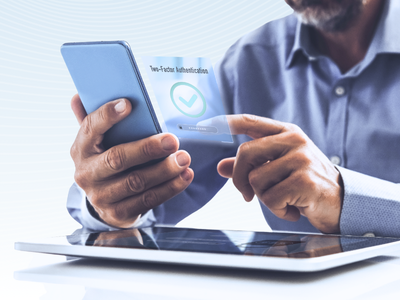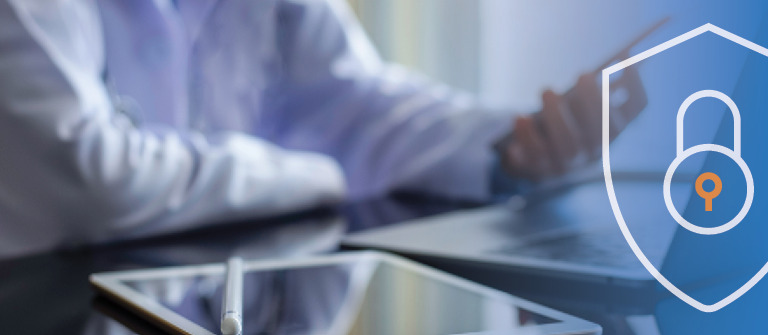Mitigating Cyber Threats
As technologies such as artificial intelligence (AI), cloud computing, and connected devices become increasingly prominent in the healthcare industry, the risk of cyberattacks on medical practices also rises. The integration of technology in healthcare is essential for developing more effective treatments and enhancing patient care. However, cyberattacks on healthcare data are growing in frequency and sophistication, often targeting patient health information (PHI) due to its high value on the dark web. With the number of healthcare cybersecurity threats continuing to climb, it is crucial for these practices to leverage technology not only to enhance patient care but also to safeguard their systems and data.
What is Two-Factor Authentication (2FA)?
Two-factor authentication (2FA) is a security measure that requires users to provide two different forms of identification to access their accounts. These factors typically include something the user knows, such as a password; something the user has, like a smartphone; and something the user is, such as a fingerprint or facial recognition. By requiring these multiple authentication factors, 2FA greatly enhances security by ensuring that even if one factor is compromised, unauthorized access is still prevented.
The Importance of 2FA in Healthcare
The healthcare sector is particularly vulnerable to cyberattacks due to the profitable nature of health records. Patient medical information can be up to 40 times more valuable than their credit card details being sold on the dark web. This high-value information includes items such as full name, address, important dates, social security numbers, health insurance information, and more making healthcare practices a prime target for cybercriminals.
Implementing 2FA can drastically reduce the risk of unauthorized access to such sensitive data. According to Imprivata, studies show that 65% of cyberattacks could have been prevented with 2FA, yet only 45% of organizations currently use it. Concerns about disrupting workflows can deter healthcare organizations from adopting 2FA, but current solutions can help balance security and efficiency without compromising productivity.
Potential Consequences of Successful Cyberattacks
If a hacker successfully breaches a healthcare system, they can gain access to a wealth of sensitive information, including patient records, financial data, and proprietary research. A practice being compromised by a hacker can lead to severe consequences, such as:
- Data Theft: Unauthorized access to patient records and financial information.
- Operational Disruptions: Ransomware attacks can halt services, delay treatments, and affect patient care delivery.
- Financial Losses: Data breaches can cost millions of dollars in fines, legal fees, and recovery costs.
- Reputational Damage: Loss of patient trust and damage to the organization’s reputation.
The Benefits of Proactive Cybersecurity
Investing in healthcare cybersecurity, including simple measures like two-factor authentication (2FA), can save healthcare organizations time, money, and resources over the long term. By preventing data breaches and cyberattacks before they occur, organizations can avoid the substantial costs associated with these incidents. Robust security measures help maintain patient trust and protect the medical practices owners have worked diligently to establish.
How to Enable 2FA
Enabling 2FA in your healthcare practice involves several steps:
- Conduct a free risk assessment to identify vulnerabilities that 2FA can address.
- Choose a 2FA solution that integrates seamlessly with your existing systems.
- Establish a 2FA solution across your organization, ensuring that all staff are trained in how to use it.
- Continuously monitor and update your security protocols to adapt to evolving threats.
Bridge™ Compliance: Adding Layers of Security for Access Control
For healthcare organizations aiming to strengthen their cybersecurity measures, Bridge™ Compliance provides digital tools to centralize and streamline compliance management. Bridge™ Compliance is designed to be secure and user-friendly, allowing you to spend less time on compliance management while increasing the safety of staff and patients, reducing risks to the practice, and facilitating easy staff training updates. Bridge™ Compliance ensures your digital assets remain protected without sacrificing efficiency.
“If anything happens when it comes to compliance, I know Rectangle Health will help and support us instead of having to carry that all on our own. I don’t know that you can put a price tag on that.”
- Alisa Buchanan, Practice Manager, Crossroads Counseling Center
By prioritizing cybersecurity and implementing solutions like 2FA, healthcare organizations can protect their patients’ sensitive information, maintain operational efficiency, and stay ahead of evolving cyber threats.
Discover how Bridge™ Compliance can enhance your practice’s cybersecurity today by scheduling a demo with our team.



